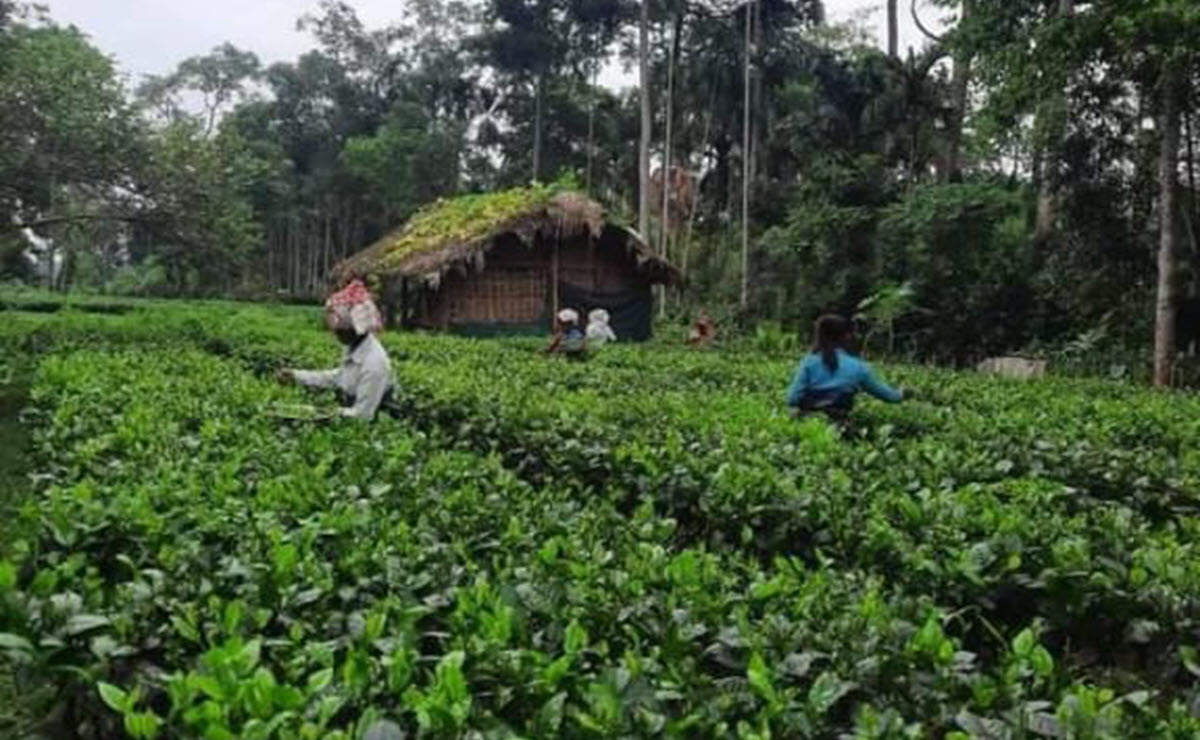The Tea Board of India last week proposed legislation that will minimize its regulatory role in favor of promotion and development. The proposed legislation, with Parliament’s approval, re-defines the board as a facilitator, a transition welcomed as “progressive” by industry leaders.
In a formal 12-page public notice, the board “proposes to delete those archaic provisions [of The Tea Act, 1953] which have lost relevance in today’s context and introduce new objectives/ functions/ powers of the board so that the board can act as a facilitator for optimizing the development, promotion, and research in the tea industry and help in improving production, export, and quality of Indian tea.”
The announcement invites public comments on the Tea Promotion and Development Act, 2022 through January 21.
- Caption: The proposed Tea Promotion and Development Act of 2022 will impact the tea industry from the ground up.

India Drafts Tea Act to Redirect Tea Board Mission
By Roopak Goswami
India Tea Board Chairman PK Bezboruah explains that “The old Act was based on facts which had become fallacies over the decades: that tea was a predominant export of India, that people needed planting permits to plant tea, that the government had accurate estimates of green leaf production in a specific block.”
Successful enactment of the Tea Promotion and Development Act, 2022 will repeal The Tea Act of 1953.
He cited “many steps that could be taken by the Tea Promotion and Development Board, including the revamping of auctions, removal of substandard teas from the system; setting a floor price and establishing quality standards for raw leaf, a ban on unethical manufacturing policies, ensuring compliance of Indian tea with international norms for MRLs [Maximum Residue Levels] and the identification of restrictive trade practices by some participants in the tea value chain.”
The government has been mulling these changes for some time but the pandemic delayed implementation. Bezboruah said that as a regulator, the Tea Board has been perceived by some as an enforcer or adversary and has been accused in the media of indulging in unprofessional behavior from time to time. “The new Act will redefine and remove some of the bottlenecks that have stood in the way of the sector’s competitiveness,” he said.
The draft spells out several objectives including “fair and remunerative prices for growers,” the promotion of tea exports, promoting the sale and consumption of tea through e-commerce platforms, promoting tea quality, promoting branding and product diversification, value addition and packaging. The board is specifically charged with supporting and encouraging small tea growers, an objective that includes implementing new technology. Oversight involves safeguarding the interests of tea plantation workers and raising awareness among the general public about the tea industry in India.
Growers will no longer be required to obtain a permit to grow tea. Traders will no longer be required to obtain a license (only to register). The board will no longer have the power to unseat inept management and take over garden operations. The new act seeks to narrow not eliminate the board’s regulatory role at a time when aggressive regulation of existing provisions has become a priority.
Ringtong Tea Estate owner of Sanjay Choudhury told the Telegraph that abandoning enforcement of the Tea (Distribution and Export) Control Order, 2005, could cause ‘‘irreparable loss’’ to the already struggling industry. The control order enabled the board in November to step up efforts to verify tea quality inspections in an effort to stem the influx of substandard teas. In December the board used a provision of the same control order to require that labels indicate country of origin and the presence in blends of tea not grown in India.
Bezboruah said that “registration of new units and regular inspection of existing ones to check for quality breaches must go on, and we must quickly evolve evaluation techniques that do not depend on human assessment. The government must also place all tea manufacturing units on the negative list for a subsidy, as presently plantations are, to avoid entrepreneurs from setting up new units to avail of subsidy.”
The central government’s vision is to see the board as a facilitator acting in the interest of industry stakeholders to restore the reputation of Indian tea as the best in the world.
Bidyananda Barkakoty adviser North Eastern Association says association members appreciate the intent of the government to include small tea growers.
“If tea board wants to be a real facilitator than a regulator then some of the proposed amendments need further amendments. We are not fully satisfied with the proposed amendments. We will submit our views in detail on January 20,” Barkakoty said.
Bijoy Gopal Chakraborty, president of the Confederation of IndianSmall Tea Growers Association said the industry has long supported revisions to the tea act. “One sincerely hopes that the new Tea Act will break the stagnancy of tea prices, boost domestic consumption in a larger way and enhance the export market,” he said.
“It is good to see that in the present bill small tea growers has been well defined,” he added. A small grower is one whose estate is not more than 10 hectares.
Bezboruah recommends the operational head of the board be redesignated CEO to give adequate recognition to the post. A full-time CEO would be able to help the board professionally, he said. In the present structure, the Board is run by the Deputy Chairman. As currently structured, the deputy chairman responsible for operations is perceived by stakeholders as playing second fiddle to the chair, he said.
Language in the draft emphasized the importance of achieving fair prices.
Mrigendra Jalan adviser to Bharatiya Cha Parishad said, “The proposed Tea Act 2022 has unshackled the tea industry from the vice-like grip which did not allow new plantation areas and putting up tea manufacturing units. Also with other amendments proposed it is expected that industry will get a supportive role from the Tea Board rather than the role of an inspector which the Tea Board has been playing in its present form.”
“The question is whether the new Tea Act will help in ensuring that a large number of workers working in the unorganized sector get at least a minimum wage thereby narrowing the huge wage disparity that is existing today between the organized and unorganized sector,” said Jalan.
Tea Promotion and Development Board Structure
The chairperson of the Tea Board of India will be named by the central government. In the future, career administrators are less likely to hold the post following the success in naming Bezboruah who is the first tea planter to hold the post. The act creates a chief financial officer, a director of tea development and the position of chief executive. The board will number no more than 20. Two members of Parliament serve, one named by the Council of States and a second by the House of the People. In addition, ten members representing stakeholders, labor, research institutes and authorities hold seats along with representatives of the governments from states where tea is grown. Two members nominated by the central government represent ministries, often commerce or agriculture. Appointees, except political appointees, must have at least 15 years of experience “in matters relating to the tea industry, governance, law, development, economics, finance, management, public affairs or administration.”
Link to share this post with your colleagues
Signup and receive Tea Biz weekly in your inbox.

Never miss an episode
Subscribe wherever you enjoy podcasts:

